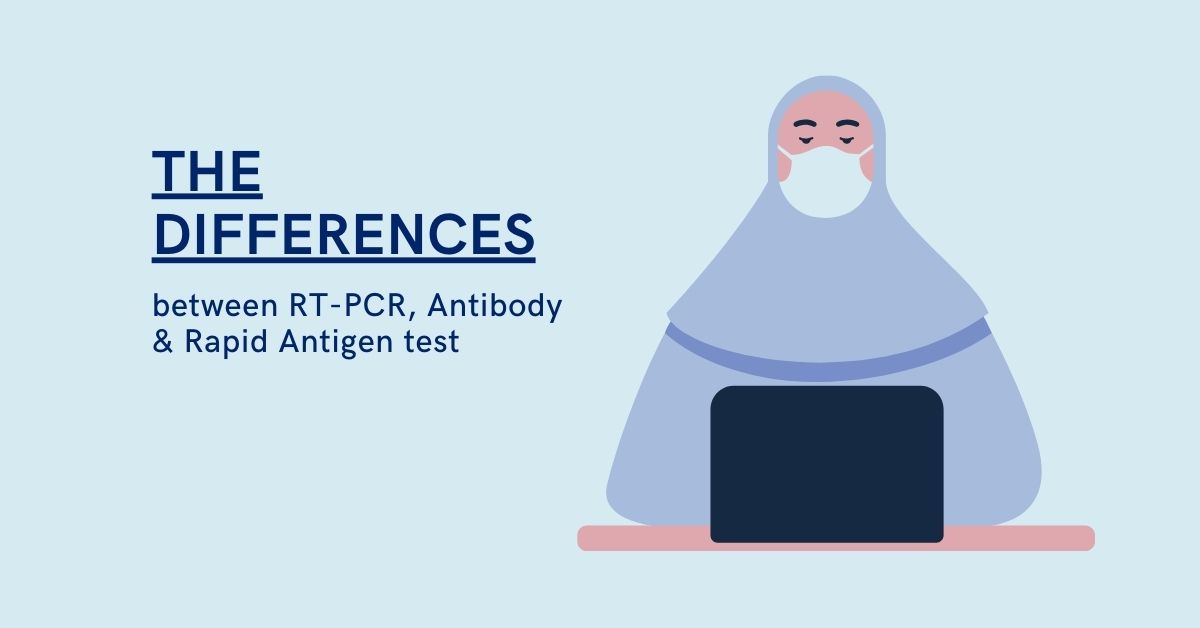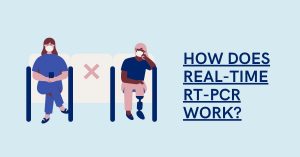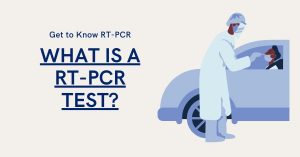
While the RT-PCR test detects the viral RNA, antibody & rapid antigen tests detect antibodies & viral proteins respectively. Know how the three tests differ from each other and solve different purposes.
RT-PCR
RT-PCR test – Real-Time Polymerase Chain Reaction, commonly known as RT-PCR test, is the most preferred test for detecting COVID-19. RT-PCR test is a laboratory test that combines reverse transcription of RNA into DNA for the detection of the virus. An RT-PCR test uses nose or throat swabs for the detection of viruses.
How Is It Different From PCR?
Before we determine the differences in both types of testing, we need to understand what reverse transcription is. Reverse transcription is a process used to make complementary DNA (cDNA) from a strand of RNA[3]. When performing PCR, DNA is needed as genetic material to determine the pathogen that is involved in the process. However, the covid-19 virus does not have DNA, therefore it needs to be transcripted from the RNA present in the virus to have PCR be performed on it. PCR is a highly used diagnostic test, used for viruses such as Ebola. Both PCR and RT-PCR can be performed in real-time as well
Antibody Test
Antibody Test determines if the patient had COVID-19 in the past and now has antibodies against the virus. Antibody testing is also known as serology testing and is usually done after full recovery from COVID-19.
Rapid Antigen Test
A rapid antigen test is a diagnostic test suitable for point-of-care testing that directly detects the presence or absence of an antigen. It is commonly used for the detection of SARS-CoV-2, the virus that causes COVID-19. Turnaround time for rapid antigen test results is usually very quick and can be reported within 15-30 minutes.


